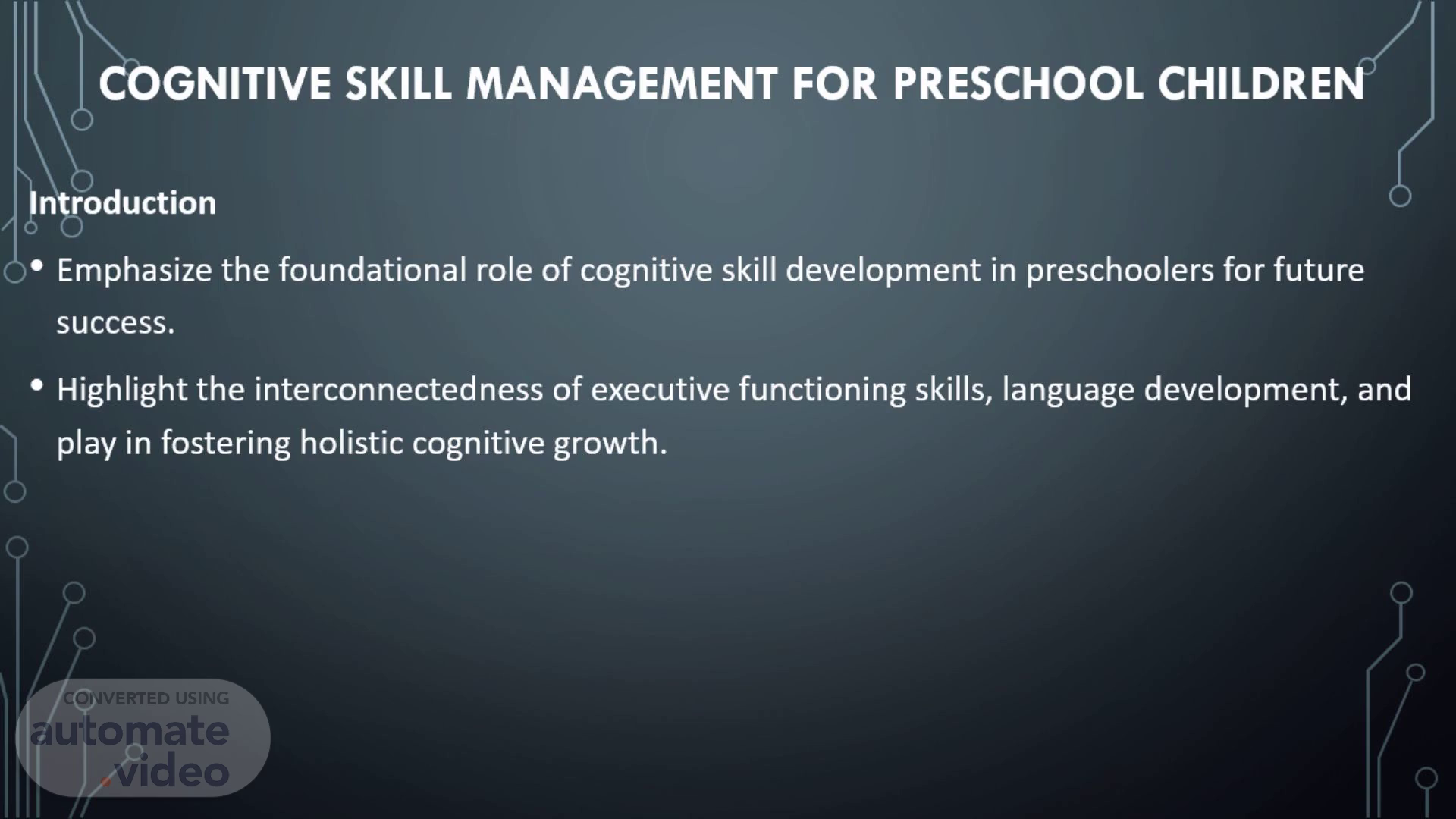
Cognitive skill management for preschool children
Scene 1 (0s)
[Audio] Welcome to our presentation on Cognitive Skill Management for Preschoolers. Today, we'll explore three key aspects crucial for the holistic development of young minds: Executive Functioning Skills, Language Development, and the Power of Play..
Scene 2 (18s)
[Audio] Executive Functioning Skills are the mental processes that lay the foundation for a child's success. This includes working memory, self-control, and cognitive flexibility. These skills are not only critical for school readiness but also for navigating life's challenges. To support these skills, consider incorporating practical strategies into your routines. Memory games, mindfulness techniques, and activities that encourage flexible thinking can significantly contribute to the development of executive functioning skills..
Scene 3 (54s)
[Audio] Now, let's delve into the second aspect: Language Development. This plays a fundamental role in effective communication, literacy, and overall cognitive growth. We break it down into three components: vocabulary development, language comprehension, and expressive language skills. Engage in activities such as reading together, having meaningful conversations, and incorporating play-based language activities to nurture these skills. A rich language environment is essential for a child's overall development..
Scene 4 (1m 33s)
[Audio] The Power of Play cannot be overstated. It is a natural and powerful way for preschoolers to develop cognitive skills. We categorize play into imaginative play, constructive play, and games with rules, each contributing uniquely to cognitive development. Encourage activities like building with blocks, engaging in pretend play, and participating in rule-based games. These not only make learning enjoyable but also foster problem-solving, creativity, and social skills..
Scene 5 (2m 8s)
[Audio] As we conclude, remember the key takeaways: Executive Functioning Skills, Language Development, and Play-Based Learning. These aspects are interconnected and contribute to a well-rounded approach in nurturing cognitive skills. Implement these strategies in both educational and home settings. Collaborate with educators, parents, and caregivers for a consistent and supportive approach. Thank you for joining us today. Let's open the floor for questions and discussions to foster a collaborative learning environment..